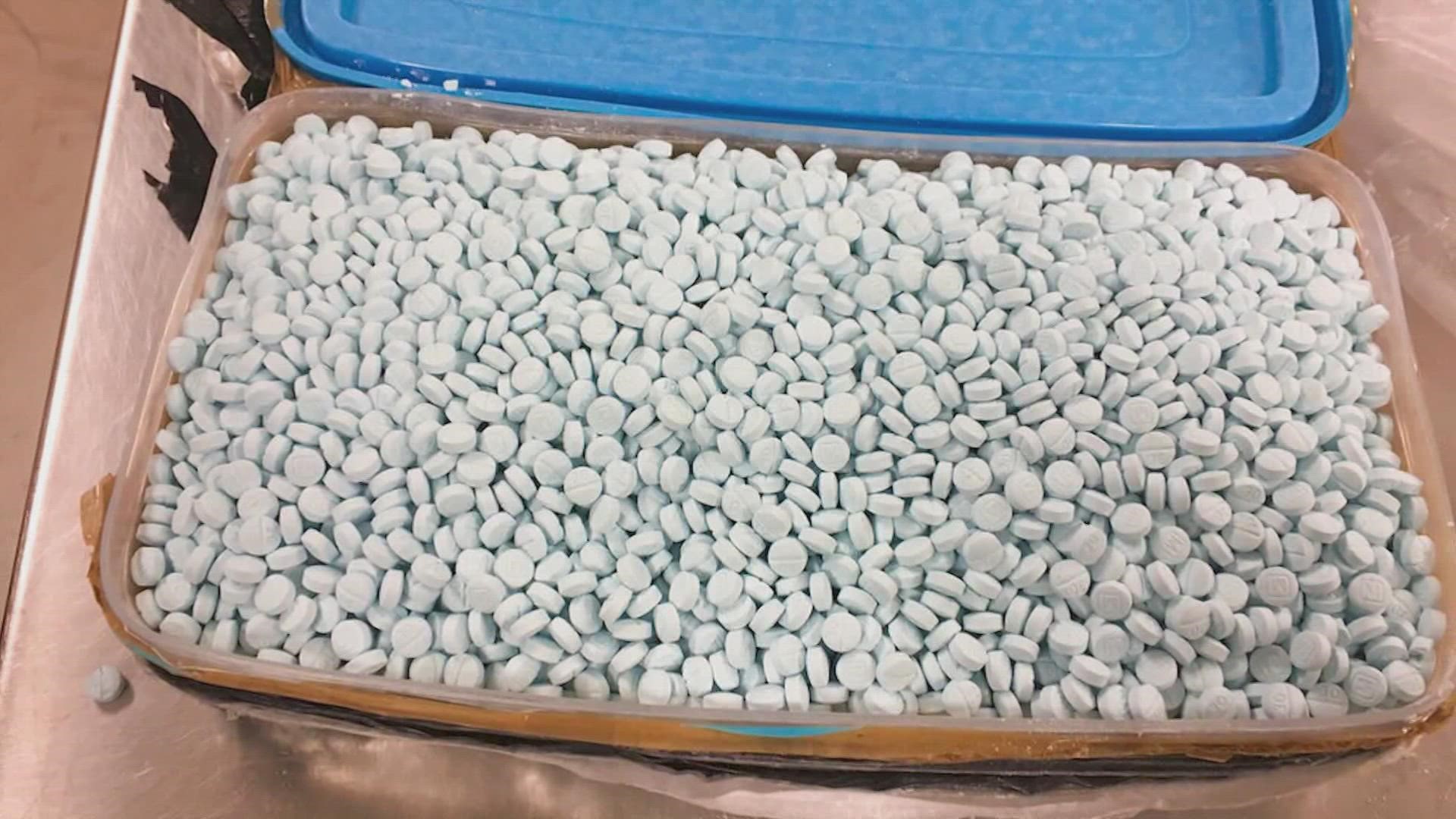KNOXVILLE, Tenn. — The Office of the District Attorney General in Knox County released a new report on Monday, revealing that 533 people died due to a drug overdose in 2021. It was a 29% increase compared to 2020.
"It's just unacceptable to think that we've lost over 500 people last year to overdose deaths in our community," said Karen Pershing. She is the executive director of the Metro Drug Coalition. They use data collected in the Fatal Overdose Victims and The Criminal Justice System report to plan outreach efforts based on community needs.
"Each of those numbers represents a person. It's an individual that we've lost in our community. And as community members, we should all be concerned about that," Pershing said.
The 2021 Fatal Overdose Victims and The Criminal Justice System report explored the data surrounding drug overdoses and people's experiences with the criminal justice system.
"Many of the people that are overdosing in our community come into contact with the criminal justice system, they have come through the criminal justice system prior to overdosing," said District Attorney General Charme Allen.
The report tracked the number of people who died due to a drug overdose after being released from prison.
In 2021, it said 209 people died within 5 years of having been arrested by the Knox County Sheriff's Office. Seventy-two people died within 6 months of being released, according to the report.
"My office uses this data to identify possible intervention points to fight against substance misuse in our community from all angles," said DA Charme Allen on social media.
There were 136 fatal overdoses among men who were arrested up to 5 years prior. Most were also between 35 years old and 44 years old, according to the report.
The report also identified the most common drugs that show up in autopsy reports following an overdose death.
The top four illegal drugs found through autopsies were fentanyl and fentanyl-analogs, methamphetamine, diphenhydramine, and alcohol, according to the Knox County Regional Forensic Center (RFC). Diphenhydramine is commonly used in over-the-counter medication used to treat allergies and can also be used to treat insomnia.
Fentanyl was not a surprise to the Chief Medical Examiner at RFC. Darinka Mileusnic said fentanyl has been growing in street popularity for several years.
"It's much stronger than heroin or morphine for that matter, or any other prescription opioid," Mileusnic said.
However, she said many folks may not know that they are ingesting fentanyl. General Allen said it's become a popular drug to cut into other street drugs so that the dealer can make a stash last longer, become more potent, and ultimately make the dealer more money.
"It is a synthetic drug that can be made in labs. It is cheap. It is cheaper to make than heroin, which has to be grown," Allen said. "But, because it is so so potent, it will kill you. A very, very small amount of fentanyl will kill you."
Mileusnic agreed. She said even the smallest amount can leave someone dead, especially if it's mixed in with something else.
"There's no gauge as to how much you're taking or what kind of drug you're taking," Mileusnic said.
According to the National Institute on Drug Abuse, Fentanyl works by binding to the body's opioid receptors, which are found in areas of the brain that control pain, emotions and even basic physiological functions.
Mileusnic said people can quickly build a dependency on fentanyl.
"The problem is that the good feeling doesn't last forever, and then those drugs and the need for drugs become stronger and, and more overpowering," the medical examiner said.
The report also discussed prevention and intervention initiatives supported by the District Attorney's Office. For example, the Drug Related Death Task Force started in 2017 and has grown to include agencies across East Tennessee. The task force effectively treats overdose deaths as criminal investigations, gathering information about where people got drugs from and potentially charging people who provided them.
The All4Knox initiative is also a partnership between Knoxville leaders and Knox County leaders. The initiative creates communitywide strategic plans to reduce substance misuse and mitigate its impact on families and individuals.
The Drug Overdose Support Group also hosts monthly meetings for parents, children, siblings and other family members who lost loved ones due to a drug overdose.
In addition, first responders keep Narcan handy as they respond to potential overdose situations.
"The last data we had told us that we were saving on average four individuals a day in our community with Narcan," Allen said.
However, as the drugs get stronger, it is requiring more Narcan to keep people alive.
"One never works. Two or three might work if the individual is found in a timely fashion. But the problem is, it's already too late because these drugs are so potent and act very, very quickly," Mileusnic said.
More information about the report can be found online. The Knox County Regional Forensic Center also annually releases reports about drug-related deaths with more specific information about overdose fatalities in their coverage area.

